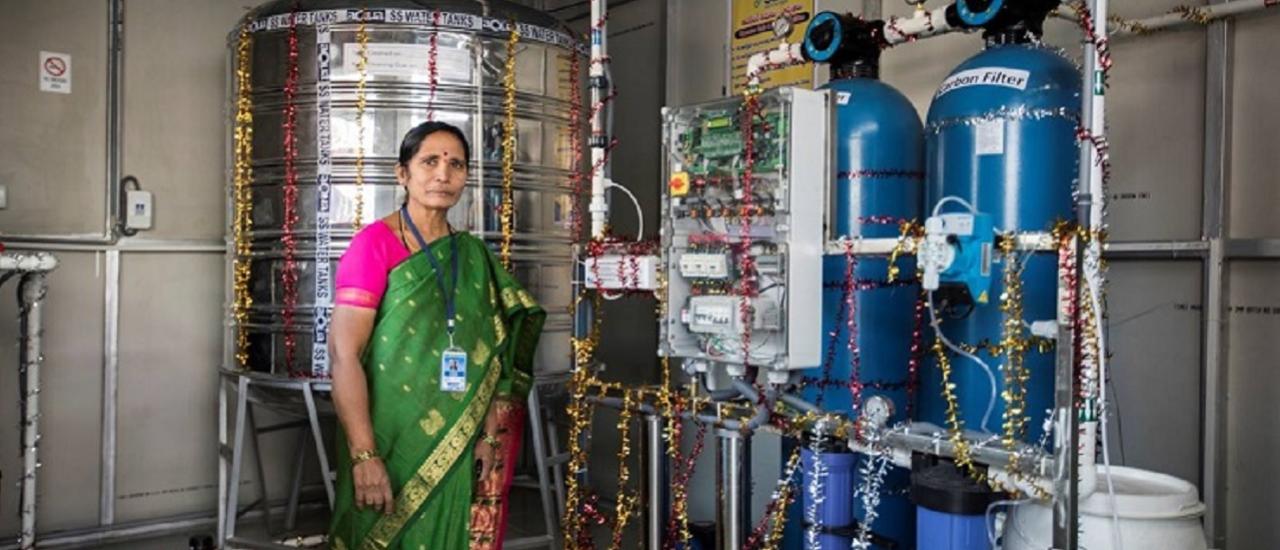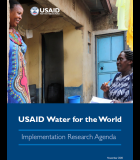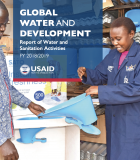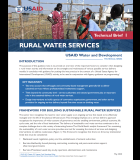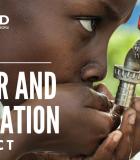In late 2017, USAID Administrator Mark Green visited a water kiosk in Hyderabad, India, to understand how a public-private partnership model of water service delivery makes safe drinking water available and affordable for people who generally have limited access to it. He met a community mobilizer, Surekha, who encourages her neighbors to frequent the kiosk.
“I have six people living in my home: two sons, two daughters- in-law, and two grandsons. I earn money working as a community mobilizer by going door-to-door and convincing people to get clean drinking water from the nearby kiosks. It just makes more sense, especially when it’s hot outside. Before, if people decided to buy water from the store, they would pay 20 rupees (30 cents) for a liter. From the kiosks one liter costs only two rupees (two cents). People don’t really understand the connection between water and their health. I want to help, so I go around and explain. First, I’ll ask a family what kind of water they drink. They’ll usually say piped water. I’ll tell them that that water isn’t good for your health. It’s why you get jaundice and diarrhea. Then, people usually say it’s too expensive to buy other water. I explain a different point of view! Buying water from the kiosk is cheaper than spending 1,000 rupees (U.S. $14) for one person to visit the doctor when the water makes someone sick. After all, 20 liters of safe water at the kiosk only costs 10 rupees (15 cents) and is enough for the entire family for a day. It just makes more sense.”
The water kiosk Surekha is referring to is a Safe Water Network (SWN) kiosk. SWN, a USAID partner, developed this model to operate water kiosks as viable, profit-earning enterprises that provide safe drinking water to underserved communities at affordable prices. This partnership leveraged funding from U.S. private sector partner Honeywell, which is contributing to the construction of 50 kiosks across Hyderabad by the end of 2018. USAID/India contributed an initial investment of $400,000, which SWN leveraged into $1.9 million to fund the 50 kiosks. The water kiosk model has buy-in from both the private sector and the Government of India, paving the way for replication in other cities and demonstrating how comparatively small investments from USAID can scale across the country.
With dedicated community mobilizers like Surekha changing minds, each kiosk will soon be providing safe drinking water for up to 3,000 people.
Related Projects


